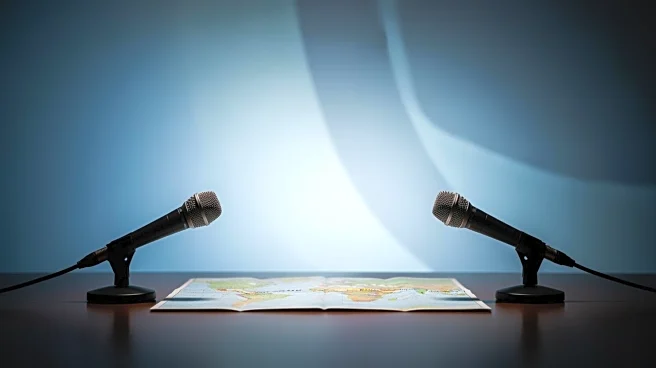What's Happening?
Ukraine's President Volodymyr Zelensky has expressed concerns over the latest peace talks with the United States in Geneva, emphasizing the issue of territorial integrity. The discussions aimed at ending the conflict with Russia have made progress, but
the demand from Russian President Vladimir Putin for legal recognition of Russian-occupied territories in eastern Ukraine remains a significant hurdle. Zelensky has consistently opposed rewarding Moscow's aggression with territorial concessions, fearing it would set a dangerous precedent. The talks did not include Russian representatives, and the Kremlin has not received updates on the discussions. The peace proposal, initially drafted by U.S. and Russian officials, has elements favoring Moscow, causing unease in Kyiv and among European allies.
Why It's Important?
The outcome of these peace talks is crucial for Ukraine's sovereignty and regional stability. Recognizing Russian-occupied territories could undermine international law and embolden aggressive territorial claims globally. The negotiations also impact U.S.-Ukraine relations, with President Trump suggesting potential cuts in U.S. support if Ukraine does not accept the deal. This situation places pressure on Ukraine to balance its national interests with diplomatic relations. The talks are a pivotal moment for European security, as any agreement could influence future geopolitical dynamics and alliances.
What's Next?
President Zelensky is expected to meet with President Trump to discuss contentious points in the peace plan. The timeline for this meeting remains unclear, but it is anticipated to address the territorial integrity issue. European leaders are closely monitoring the situation, as the peace plan's acceptance or rejection could have significant implications for regional security and diplomatic relations. The absence of Russian participation in the talks suggests further negotiations may be necessary to reach a comprehensive agreement.















